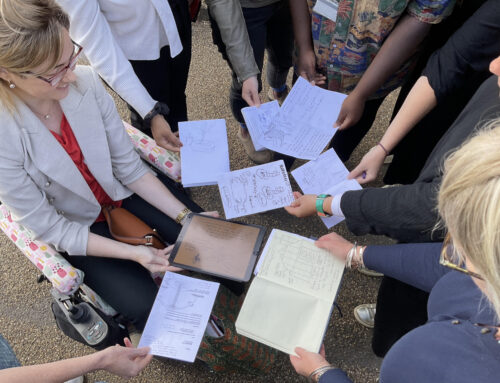By Emma Jones, and John Stannard, Queen’s University, Belfast
Very few people would dispute that law and affect (encompassing emotions and feelings) are intertwined to some extent. There may be disagreements as to when and how affect can and should impact on the law, for example, in the drafting of legislation, in court room encounters or between lawyers and clients. There may also exist some variants on the usual “floodgates” argument in law, along the lines of “if we acknowledge emotion, where will it all end?”. There may even be concerns about the neo-liberalisation of affect with the ubiquitous use of terms such as “wellbeing” and “emotional intelligence”. Nevertheless, there is a growing understanding that affect cannot simply be unquestioningly suppressed or ignored within law. Instead, legal academics are making increasingly sophisticated efforts to discern and discuss the intersections between law and affect and consider how this translates to the practice and application of law. This is something that was evidenced in the “Law and Emotion” stream at last year’s SLSA Annual Conference and will be again during the programme for the stream this year.
However, in this year’s stream we also want to ensure that we evolve the discussion around the theoretical framework which the relationship between law and affect is grounded in. Indeed, our first question has to be is there currently such a framework? If not, is it possible (and desirable) to develop one? Often scholarship on law and affect references, explicitly or implicitly, the feminist notion of a duty of care and ideas around social constructivism. It also offers clear challenges to the form of Cartesian dualism which arguably still characterises much debate within law. Much of this hints at the potential basis for a theoretical framework but, perhaps understandably given the challenges involves and the recent development of this scholarship, there is arguably still relatively little work which seeks to fully explore and develop such as “grand theory”.
In many aligned fields, such as comprehensive law, integrative law and therapeutic jurisprudence, it is often the case that the practice has evolved before the theory. This may not be a disadvantage, as demonstrating practical application has its own worth, as well as potentially attracting those who may seek to then discern and evolve the relevant theoretical insights. However, it does raise the danger that critics can dismiss such important and valuable fields as a form of unsubstantiated fad. It may also make it harder for such fields to develop, if the theory is not there to assist in providing a coherent way forward. For those with an interest, but little or no experience in these fields, it can also sometimes feel like it is a smorgasbord of different approaches that are on offer, rather than variants on common themes.
Of course, it may be that it proves impossible (or undesirable) to try and produce one overarching “grand theory”. At best, it is likely to require dedication from an inter-disciplinary range of scholars pooling their insights into both law and affect. However, it is arguable that even the act of asking questions about the theoretical framework has a value. It opens up such issues to debate and critique and assists in considering the wider evolution of law and affect and its associated fields. In the final session of our law and emotion stream at SLSA 2018 we will be discussing some of these fascinating, and challenging, questions and throwing the floor open to debate from anyone who has an interest in these issues. We may not find any answers, but we have no doubt the process will open up exciting new lines of enquiry.
The SLSA’s law and emotion stream will be running throughout Wednesday and Thursday at the 2018 annual conference featuring an exciting range of speakers on diverse and fascinating topics. The final session will explore the notion of a “grand affective theory of law”. The co-convenors (Emma Jones and John Stannard) are also developing a network of law and emotion scholars. To be on the mailing list for this, please contact e.j.jones@open.ac.uk)






Leave A Comment